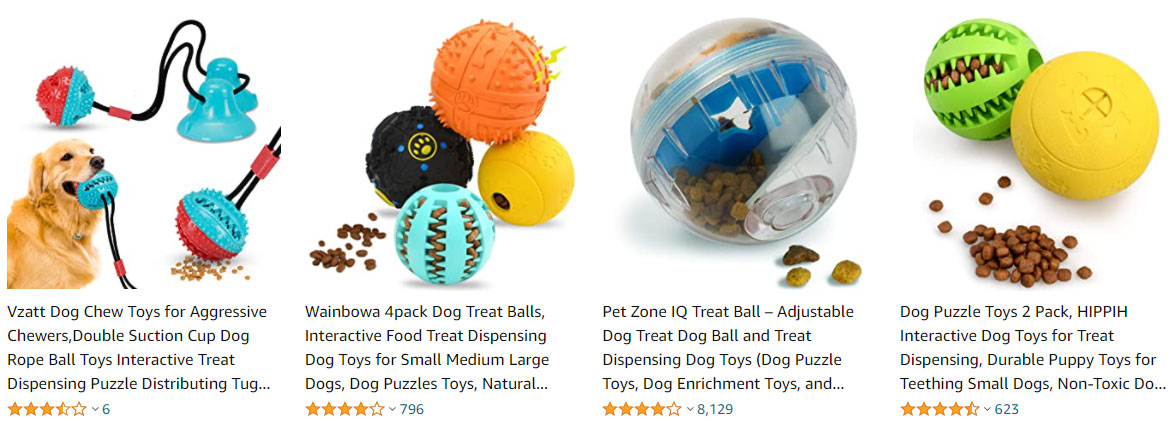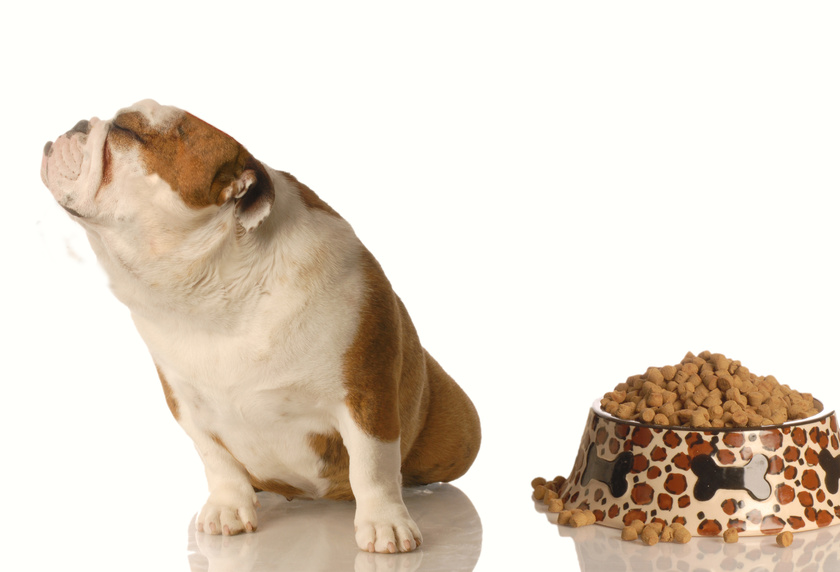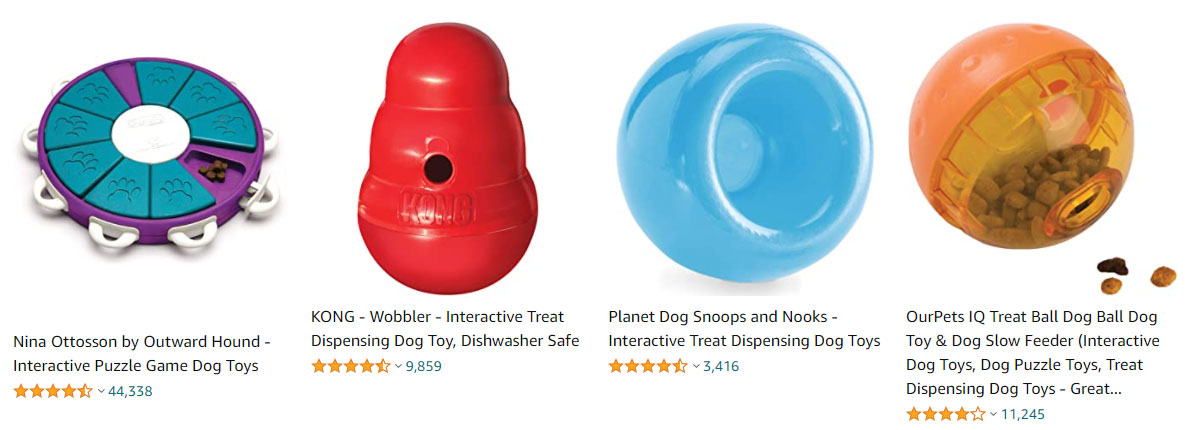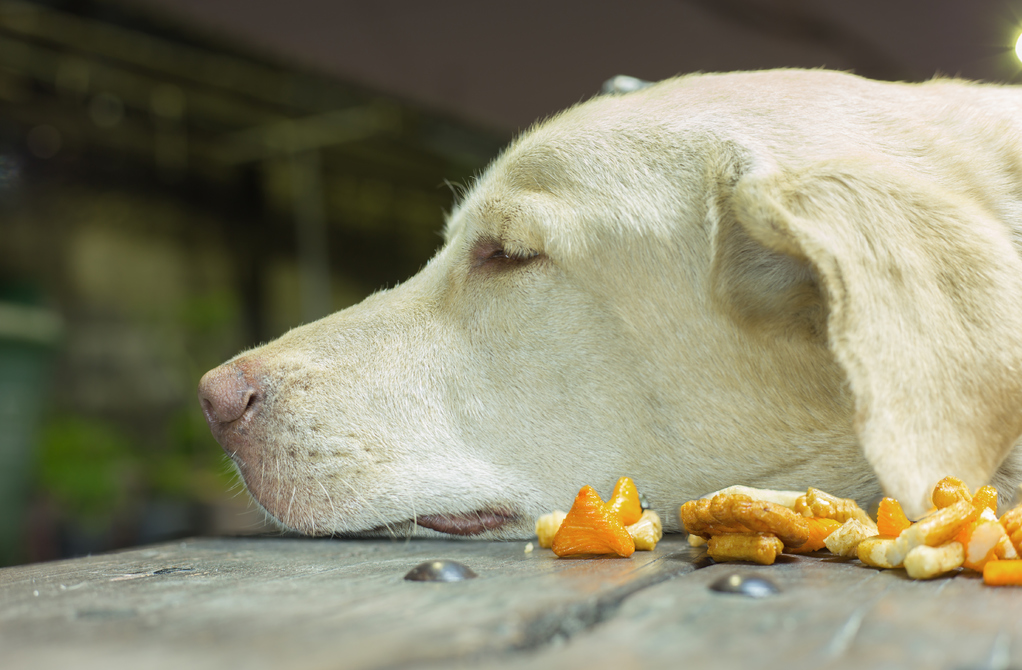My dog won't eat
A dog that doesn't want to eat usually has good reasons for doing so: he may have a health problem that is suppressing his appetite, or he may be expressing latent anxiety that is ruining his life.
Identifying the phenomenon that causes your dog's eating disorder can take a long investigation, especially when it is due to emotional distress, the signals of which are usually very discrete. Today, I would like to take you through the most common eating disorders in dogs with anorexia and their degree of severity.
What is anorexia in dogs?
Anorexia in dogs is an eating disorder that is characterized by a complete lack of food intake. It is distinguished from hyporexia, which occurs when the dog eats less than it should. The consequences of anorexia and hyporexia on the dog's health can be dramatic in the medium and long term, as the animal may suffer from undernutrition.
Undernutrition is characterized by weight loss and nutrient deficiencies that alter the functioning of the dog's various organs, thus risking long-term deterioration of its body. Like humans, dogs need to eat to live. His food allows him to absorb proteins, a source of amino acids essential to the functioning of his metabolism.
My dog won't eat, why?
Many physical and emotional conditions can be behind an eating disorder in dogs. Your dog may not want to eat because he is in pain, because a mechanical dysfunction prevents him from swallowing food, because he is anxious... Or because he does not appreciate the taste of the food you serve him!
My dog won't eat because he's picky
Yes, some dogs are picky eaters, although this may seem surprising given their propensity to taste all sorts of unappetizing things, including rotting animal carcasses and excrement! However, there are dogs who are picky eaters of certain kibbles or chews, not liking the smell, flavor, texture or size.
If you've recently changed brands of kibble, it's quite possible that this is the problem. Also note that manufacturers sometimes change their product recipes without notifying their consumers - often for the worse - which will surely escape a dog with a delicate palate. Your dog may very well sulk at the kibble you've been serving him for years, especially when you've just bought a brand new package, which seems to be exactly the same as usual...
Generally, it is not difficult to determine if a dog does not eat anymore because he does not like the taste of the food you offer him. In fact, in this case, it is likely that he will throw himself on his favorite treats or on table scraps that seem more appetizing to him.
You can also look at his food bowls, as some dogs hate to eat from a dirty container, and others can't stand the taste that plastic gives to their food. Finally, it should be noted that some breeds of dogs are known to be more difficult than others, such as the Akita Inu. Conversely, it is highly unlikely that a Beagle would be able to eat anything that is edible.
My dog doesn't want to eat because his teeth or mouth hurt
Periodontal disease is extremely common in dogs and can range from simple discomfort to severe mouth pain that can discourage your dog from trying to eat. If your dog does not want to eat, his mouth should be the first site to be examined. The presence of tartar should alert you, and if you see redness on the tongue of your dog's gums, you can be pretty sure you've found the problem.
Periodontal disease can have a number of negative health consequences for your dog, ranging from tooth loss to jawbone deterioration to sepsis, which can lead to death. If your dog is reluctant to eat and/or you notice any abnormality in his mouth, it is essential to consult a veterinarian without delay.

My dog won't eat because he is sick
A sick dog may lack appetite, with hyporexia and anorexia being common symptoms of general unwellness. Typically, fever tends to suppress appetite, as does nausea, which is a symptom of digestive disease. Decreased appetite or total anorexia are not sufficient symptoms to determine what your pet is suffering from, and further investigation is necessary to identify the disease and implement appropriate treatment.
Look for other symptoms associated with the lack of appetite, such as decreased energy, increased fatigue, sudden shyness, complaints or fever. All the information you can gather will be very useful in helping the veterinarian identify the condition your dog is suffering from. Nausea in dogs is characterized by hypersalivation, which causes the dog to lick its lips and swallow more often than usual.
Note that nausea associated with a lack of appetite and unsuccessful attempts to vomit may indicate an intestinal obstruction or Torsion Stomach Dilation, true veterinary emergencies. Finally, it's important to know that the illnesses that can discourage your dog from eating are not always digestive. Respiratory problems that cloud your dog's sense of smell, for example, can also be the cause.
Nervous disorders that cause paralysis of the esophagus or damage to the mechanisms that regulate the sensation of satiety and hunger may also be suspected.
My dog won't eat because he's stressed
Long neglected, stress is a real scourge in dogs, likely to cause great emotional distress that can lead to serious health problems. The symptoms of latent anxiety in dogs are very insidious, and many owners never identify them, ignoring all their life how much their pet suffers psychologically.
A dog that does not want to eat may be disturbed by a change in its environment or may have always been exposed to a lifestyle that does not suit it. Stress should be considered only after a veterinarian has ruled out a physical illness, so as not to put your dog's health at risk.
If anxiety does seem to be the cause, the owner has a long way to go to determine the extent to which the lifestyle and environment he or she is providing for the dog may be detrimental to his or her well-being. Generally, it is wise to look at a lack of physical exercise, intellectual activities, access to outdoor spaces rich in stimuli, free walks and socialization with other dogs.
A brutal or clumsy education can also greatly harm the psychological balance of the dog, which can be very upset by his master's reprimands.

My dog won't eat, what can I do?
If your dog does not want to eat, it is important to look for the causes of his lack of appetite with diligence in order to remedy his problem quickly, before he suffers from undernutrition. However, your observations are not a substitute for a veterinary examination, but only the first clues to help you assess the severity of the problem and the urgency of the situation.
Start by trying to find out if your dog has really lost his appetite or if he doesn't like the food you serve him. The best way to do this is to offer him a menu he can't resist, such as raw meat. Be careful, this exceptional meal is only a test and should not be repeated, because it is not balanced and can lead to serious deficiencies as well as undernutrition.
If your dog throws himself on this food, it means that he has not lost his appetite. However, this does not automatically mean that he is a picky eater: he may also suffer from dental problems that allow him to swallow a soft food, but not to chew his kibble. To rule out oral lesions or periodontal disease, you can examine his mouth and try to get him to play with his favorite chew toy: if he chews it with gusto, he's probably not suffering from dental pain.
If your dog's mouth looks healthy and he's willing to eat anything but his kibble, it's probably the taste of the food that doesn't agree with him, or the smells around his eating area that put him off. Wash his food bowls thoroughly in hot water, clean the area around his feeding area and replace his plastic or metal dishes with ceramic ones. If your dog still doesn't want to eat, it's a good idea to change his food to something more to his liking.
Anorexia or hyporexia that persists for more than 48 hours despite a change of kibble should prompt you to consult a veterinarian. The same applies when your pet is fragile (puppy, older dog, pregnant bitch, sick or convalescent dog, etc.) or if other symptoms accompany its lack of appetite.
FAQ
What can you feed a dog that doesn't want to eat?
Before looking for a food that might be suitable for a dog that doesn't want to eat, it is essential to consult a veterinarian to diagnose the cause of his ailment. Once this is done, it is possible to turn to veterinary dog food brands that market products specifically for anorexic dogs. These are more appetizing, but also more nutritious, allowing the dog to absorb more calories and nutrients through reduced amounts.
Why doesn't my dog want his kibble anymore?
It can happen that some dogs suddenly turn away from kibbles that they have been eating with good appetite for months or years. There is not always a reason for this behavior, but most often it is due to a change in the kibble recipe that the manufacturer has made without notifying the consumer. As one might expect, these changes are often negative and go hand in hand with a decrease in the quality of the ingredients.
My dog doesn't want to eat, can it starve to death?
Yes, a dog that doesn't eat anymore can die of hunger, but this is rare. This unfortunate outcome occurs more often in very sick, very old or very ill dogs, who no longer have the strength to eat or can no longer mechanically swallow food. A healthy dog that is being fussy will usually end up eating the kibble offered to him, even if he is reluctant. However, he may be satisfied with the minimum, and may then lose weight and suffer from malnutrition.
My dog doesn't want to eat anymore, is he sick?
Lack of appetite is one of the typical symptoms of an alteration in the general health of an animal, occurring in the event of injury, illness or emotional discomfort. If your dog refuses to eat, he may be ill, and only a veterinary visit can confirm or deny this.
If your dog does not want to eat, it is necessary to pay particular attention to his physical and psychological health to try to find out what is stopping his appetite. The causes of anorexia and hyporexia in dogs are many and varied. Examining your dog's mouth, any other symptoms he may have, and the context in which this sudden hunger strike occurred should help you understand the situation and assess its severity.
If you can't rule out a disease or injury as the cause of your dog's eating disorder, it's highly recommended that you seek veterinary care quickly.


